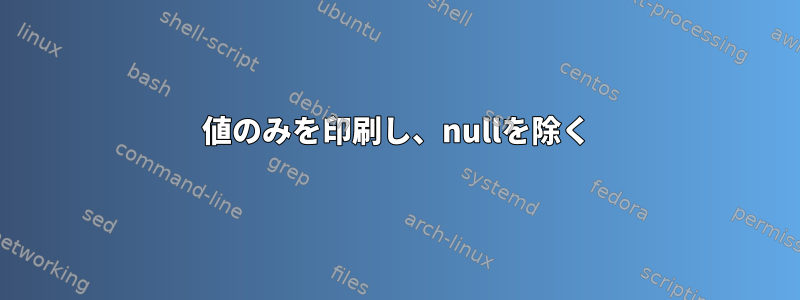
jqを使用してjson出力を印刷しようとしていますが、nullが表示されます。印刷せずにaccess_keyとSecret_keyのみを印刷する方法はnull?
$ cat sample.json | jq '.'
{
"access_key": "xxxxxxxxxxxxxxxxxxxxxxxxxxxxxxxxxxxxx"
}
{
"secret_key": "xxxxxxxxxxxxxxxxxxxxxxxxxxxxxxxxxxxxxx"
}
$ cat sample.json | jq -e ".access_key"
xxxxxxxxxxxxxxxxxxxxxxxxx
null
Secret_keyでも同じことが起こります。
「生出力」を使用するとエラーが発生します。
$ cat sample.json | jq -r ".access_key" | jq --raw-output 'select(type == "string")'
parse error: Invalid numeric literal at line 2, column 0
私もこれを試しました:
$ cat sample.json | jq -re ".access_key" | jq 'select(.go != null) | .geo' > geo-only.json
parse error: Invalid numeric literal at line 2, column 0
答え1
入力したjsonが正しくありません。あなたはそれを使用することができますhttps://jsonlint.com行って確認してみてください。
次のように変更して動作させることができます。
[{
"access_key": "xxxxxxxxxxxxxxxxxxxxxxxxxxxxxxxxxxxxx"
}, {
"secret_key": "xxxxxxxxxxxxxxxxxxxxxxxxxxxxxxxxxxxxxx"
}]
またはjq回避策があります。
cat sample.json | jq "..|objects|select(.access_key) | .access_key"
簡単なツールを使用することをお勧めしますJSONJq以上。高速ではありませんが、使いやすく直感的で、機能も優れています。
jsonはパラメータを使用してこの問題を処理します-g。
-g、--グループ
隣接するオブジェクトをオブジェクトの配列にグループ化するか、隣接する配列を単一の配列に連結します。
$ cat sample.json | json -ag access_key
1234
答え2
1つの解決策は、次を使用することです。empty
cat sample.json | jq -r -e ".access_key // empty "


